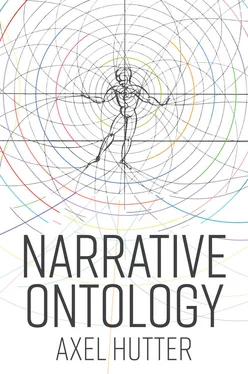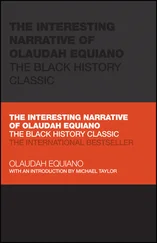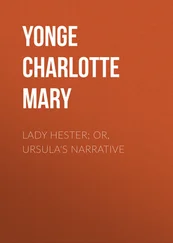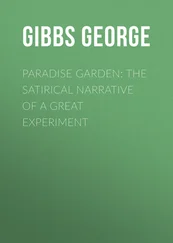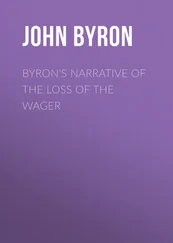Human striving for self-knowledge is, for this reason, to be grasped concretely as a basic striving to understand oneself, the meaning of one’s individual life story in which the self articulates itself temporally, in the same way in which we understand a narrative, in which a narrative meaning unfolds. Yet the fact that we seek this self-understanding makes unmistakably clear that, in our life story, we firstly and for the most part do not understand ourselves. Thus, standing since Socrates at the beginning of all self-knowledge is the honest admission that we do not know ourselves – that is, that we do not understand the meaning of our individual life story.
If one admits, however, that one does not understand oneself in one’s individual life story, then one must at least have some idea of what it means to understand oneself. Otherwise, the non-understanding would not appear as a deficiency to the one who lacks understanding, and the unrest of self-knowledge could not be awakened. It is language that displays for human beings this important initial clue of the self-understanding that is sought, the ‘preschool’, as it were, of self-knowledge that understands: seeking to understand oneself in the entirety of one’s life story means having trained one’s desire to understand with the understanding of narrative contexts of meaning. It is just as impossible to understand narrative meaning as it is to understand the life story of a person in a simple, instantaneous grasp – indeed, narrative meaning can only be understood by patiently examining the unity of narration in its genuinely temporal organization.
What does it mean, though, to understand the narrative meaning of a narrative or a story? How is narrative understanding itself to be understood? These questions make clear that the understanding of linguistic meaning is by no means so ‘simple’ and self-evident as it may appear at first glance, and in the usual context of a well-rehearsed communication. It also holds here that one can find, lying behind the veil of presumed familiarity and self-evidence, an enigmatic adventure. Corresponding directly to the art of self-knowledge is thus an art of understanding. The peculiar elective affinity between self-knowledge and understanding stems from the fact that understanding a complex narrative unity of meaning and the understanding of one’s own life sought in self-knowledge are in agreement: what they are directed at can be articulated only in time .
Thus, the usual account of understanding a word, according to which one is able to point to the object to which the word refers, is of little help for the art of understanding that is sought here. 1If the context of meaning of a complex text evidently means more, and something other, than the sum of its single words, what, then, does it refer to? Important for the concrete context of meaning is how the words in the sentence, and the sentences in the text, follow each other temporally . This peculiar dimension of meaning of language that is articulated in the temporal organization of its parts may, for good reason, be called the narrative dimension of meaning of language, for the narrative represents, as it were, the primordial form of a linguistic context of meaning. In this form, the meaning that is to be understood comes down, above all – besides and independent of all particulars in their isolation – to their temporal composition and sequence. 2
Now the same holds, though, for the life story of a human being, for understanding single actions and events is only one aspect of our life, while it is a thoroughly different and more important aspect to understand the narrative unity of one’s own life story. For this reason, it is precisely the narrative-historical dimension of meaning of our life that we actually seek to understand and about which we are in the first place clueless, as versed as we may be in ‘understanding’ individual events of our life. The fact that the unity of meaning means something more and something other than the sum of all its particulars must not lead to divorcing the context from its particulars entirely. In both cases, in the case of a narrative and in the case of a life story, the following holds: we must first learn to spell before we can read. This is immediately clear when we do not have a good command of the language in which a text (for instance, a novel) is written. Here, we are still struggling so much with the details of the language that we – to use a telling phrase – do not ‘enter into’ the actual story, that is, into the overarching narrative unity of meaning.
Similarly, it is not until later in life, once the single ‘letters’ of human existence are sufficiently familiar for the question concerning the overarching unity of meaning to be awakened, that the Socratic need for self-knowledge stirs in us. Yet one can also observe how the initial inability to understand the meaning of one’s own life story can lead one to devote new, exaggerated and cramped attention to the single letters in order to distract oneself from the daunting emptiness and meaninglessness of the life as a whole that one has still not understood.
Successfully spelling out a text, correctly comprehending the individual linguistic components, is necessary for properly understanding its context of meaning, but by no means to be equated with it. Quite the contrary, one can say that we have not really understood a particular episode, a particular detail of a narrative, until we have understood the story as a whole . For this reason, it is questionable whether we can really understand a single event of our life appropriately if we remain clueless concerning the meaning of our life story as a whole. This cluelessness characterizes, however, the starting place of human self-knowledge because we precisely do not understand ourselves, our own existence in its temporal-narrative dimension as a life story. We believe, indeed, to understand this or that in life, but what this actually means in the context of our life story – that we do not understand (which means we do not actually understand this or that, either).
Socratic non-knowledge concerning the Delphic commandment of self-knowledge can, for this reason, be grasped more concretely and determinately as non-understanding concerning the peculiar dimension of meaning of one’s own life story. Just as the art of self-knowledge responds to an initial human non-knowledge about what or who one is, so the art of narrating reacts to the initial cluelessness of human being concerning how the story of one’s life is to be understood. For this reason, what is to be understood in self-knowledge is in a sense understanding itself. In understanding, the non-objectifiable form of being of the subject manifests itself exemplarily. Being a subject means being able to understand and – perhaps even more fundamentally – wanting to understand. Self-knowledge is thus an understanding of understanding. Wanting to understand oneself means wanting to understand not merely one’s own existence in time but, equally, the enigmatic capacity of self-understanding as such, which guides self-knowledge and makes the questioning subject into a subject or an I in the first place.
What hinders us from grasping the basic thought pursued here – of understanding narrative meaning as a systematic guide for the enlightenment of human self-knowledge – is the prejudice that the originary phenomenon of understanding meaning is not only unnecessary for knowledge of reality, but even misleading. The crucial difference between reality and a fictional narrative, so it seems, is that only the latter is characterized by the necessity of being meaningful. If fictional contexts were not meaningful, they would not exist at all. In stark contrast to fiction, factual reality (thus, also, one’s own life reality) is characterized precisely by having no meaning. For the common understanding of being, this is their fundamental difference: fiction has meaning; reality, not.
Читать дальше
